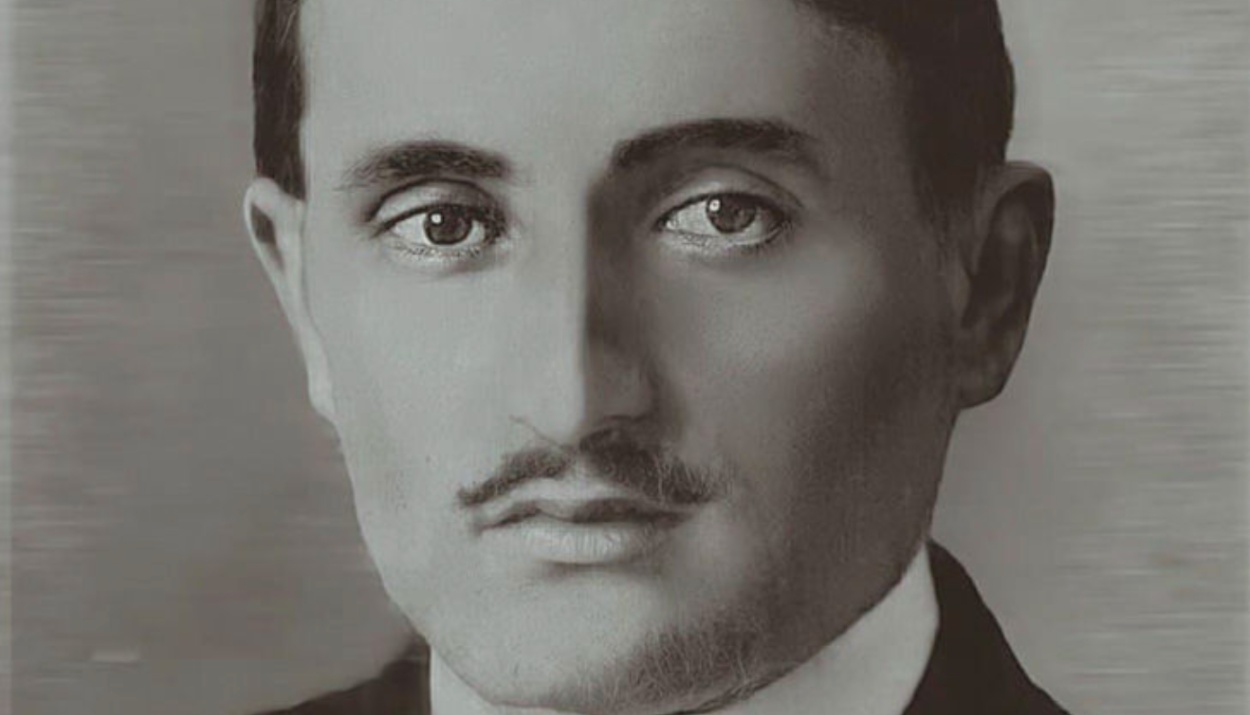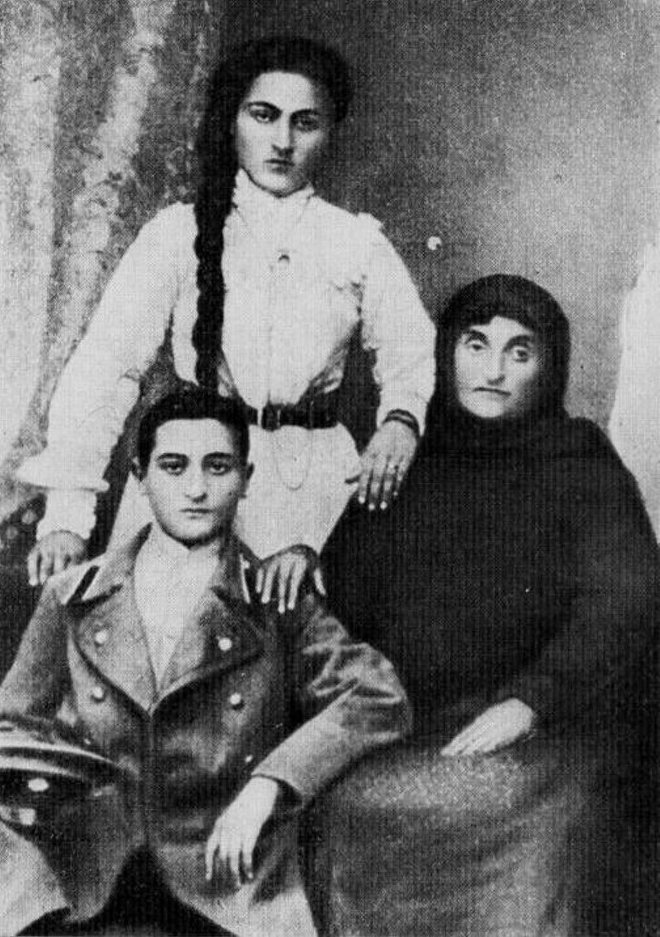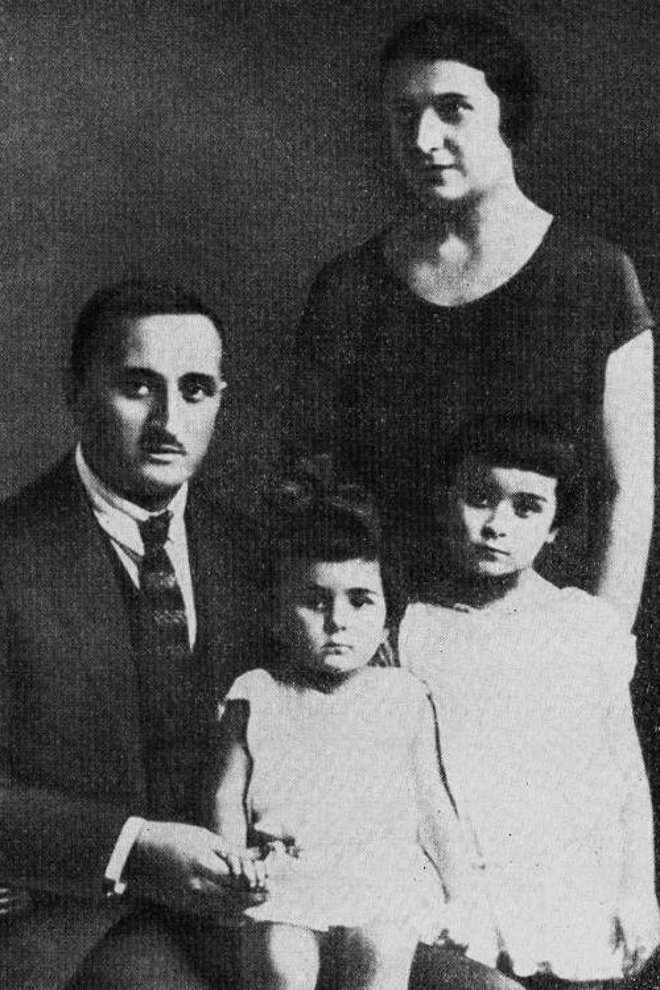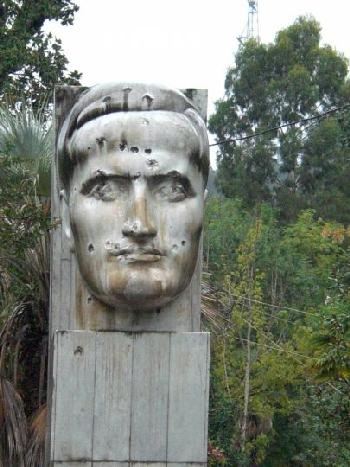Efrem Eshba: revolutionary and fighter for the idea of Abkhazian statehood

Efrem Eshba (19 March 1893 – 16 April 1939) was an Abkhaz and Soviet statesman.
In March 2021, Abkhazia celebrated the 100th anniversary of Sovietisation. The statesman and politician Efrem Eshba was an active participant in the revolutionary movement in Russia and Abkhazia. Today, 128 years have passed since his birth.
State and political figure Efrem Eshba studied at the law faculty of Moscow University. In the history of Abkhazia, his name is associated with the struggle for the independent existence of the republic and the establishment of Soviet power in Abkhazia.
Outstanding figure
Assessing the role of Efrem Eshba for the formation of the republic, the historian Soslan Salaq’aja noted his outstanding qualities as a political and statesman.

Efrem Eshba, his mother Marta and sister Chocho. Sukhum, 1905.
‘Efrem Eshba is one of the outstanding political figures, whose name is associated not only with the establishment of Soviet power in Abkhazia, but also with the restoration of Abkhazian statehood. He was well educated, studied at the law faculty of Moscow University. Eshba took part in the revolution quite early, and upto 1917 he was the recognised leader of the Abkhazian Bolsheviks,’ notes the historian.
Efrem Eshba from May 1917 was Chairman of the Sukhum District Committee of the RSDLP (b), and at the same time from February 1918 Chairman of the Sukhum Soviet [Council]. From December 1918 he was Special Commissioner for the Mountain-peoples of the Caucasus from the People's Commissariat for Nationalities of the RSFSR.
+ Efrem Eshba: revolutionary and fighter for Abkhaz statehood
+ Efrem Eshba - A book by Georgy Dzidzaria
+ A century of Sovietisation, or How Abkhazia became a republic, by Vitaly Sharia
+ Resolution of the First Congress of the Workers of Abkhazia on the Report of Revcom Chairman E. Eshba on Building of Soviet Society, 28 May 1921
+ Telegram from the Revolutionary Committee of Abkhazia of March 26, 1921
+ Abkhazia—Documents and Materials (1917–1921)
‘It was Efrem Eshba, together with Nestor Lakoba and other activists of the Bolshevik movement, who spoke at the First Congress, when the "Abkhazian People's Council" was created,’ he noted.
‘He spoke in favour of transferring power to the Soviets of workers and peasants. After that, in 1918, Efrem Eshba led the struggle for Soviet power and was the Chairman of the Revolutionary Committee of Abkhazia,’ Salaq’aja emphasised.

Efrem Eshba with his family.
‘In April-June 1919, Efrem Eshba was Deputy Chairman of the Central Bureau of the Communist Organisations of the Peoples of the East and one of the organisers of the partisan-movement in the Caucasus. In November 1919 he was sent to Georgia to conduct clandestine work, was arrested, but, at the request of the RSFSR, in May 1920 he was released.
‘In 1921, Efrem Eshba with Nestor Lakoba and other Abkhazian Bolsheviks participated in a special mission in Turkey,’ he noted.
‘In Turkey, he managed to get support from the Abkhazian diaspora for the actions of Kemal Atatürk and, probably, thanks to this, the Abkhazian Soviet Socialist Republic received recognition. We must not forget that Abkhazia existed for several months as a formally independent state. Although under pressure from Stalin a process was initiated in order to drive Abkhazia into the constituency of Georgia, Eshba tried to avoid this with all his might,’ the historian said.
Against joining Georgia
Efrem Eshba in November 1921 wrote to the Caucasian Bureau of the Central Committee of the RCP (b) that the entry of Abkhazia into Georgia did not make sense.
‘He wrote that it would be better if Abkhazia joined the Transcaucasian Federation as a fourth republic, but the KAVBURO was insistent, and Eshba had to agree to a union-treaty. Nevertheless, Eshba’s behaviour could not prove pleasing to the Georgian leadership, and in 1922 he was largely removed from Abkhazia. He was first transferred to Tbilisi; he worked in America; and in the end he was accused of Trotskyism and expelled from the party,’ Soslan Salaq’aja stressed.
Efrem Eshba was accused of Trotskyism in 1927 and expelled from the party, but in 1928 he was reinstated. Afterwards he held the post of Secretary of the Chechen Regional Committee of the CPSU (b).

Monument to Efrem Eshba in Sukhum. During the 1992-93 Georgian-Abkhazian war his monument targeted by Georgian invaders.
Efrem Eshba from August 1920 was the Secretary of the Labinsk Committee of the RCP (b). From February 1921 he was Chairman of the Revolutionary Committee and the Central Executive Committee of Abkhazia. In 1922-1924 he was Secretary of the Central Committee of the Communist Party (Bolsheviks) of Georgia. From 1924 to 1925 he worked at the USSR Trade Mission in London.
In the summer of 1936, he was arrested by the NKVD on fabricated charges. In August 1939 he was sentenced to death. He was shot. Posthumously he was rehabilitated.